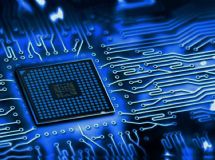- Computers have been around for decades, and with the ever increasing need for smaller, more compact systems, the thin client has become very popular over the years. You can easily fit these systems in any business without compromising performance because they take up considerably less space than a normal desktop computer.
- Thin clients are similar to desktop computers and come with a variety of specifications. They are low on power consumption and are also very useful in networking environments where clients are usually limited in functions. Many of these systems do not even contain a hard drive and have just enough information to boot from the server computer and run the needed programs, making these small systems much safer and less vulnerable to attacks. No sensitive information will be lost in case of theft, since all data is stored on the main server, not on the individual client.
- A thin client can be used in various environments, the most popular of which is larger businesses with a networking environment. Smaller companies also use these systems because of their versatility and safety. Many networking systems in stores and supermarkets use thin clients as part of their point of sale system. There is no need for the larger desktop systems because thin clients only need to run one specific application.
- Thin clients are less expensive than regular desktop systems. They are not priced similarly to larger systems or servers, since they will likely contain less hardware and only function in a specific role. Companies will spend money on a reliable server that will hold all of the company's information and purchase additional thin clients for each terminal. This is a big advantage for most businesses because they need to provide most of their employees with a terminal or desktop system.
- Thin clients may soon be replacing all desktop computers in the work environment because of all of the features that they have. These systems are a good option for any business owner because they use less power and have more reliability and versatility than full desktop computers.
History
Specifications
Uses
Pricing
Summary
SHARE




































